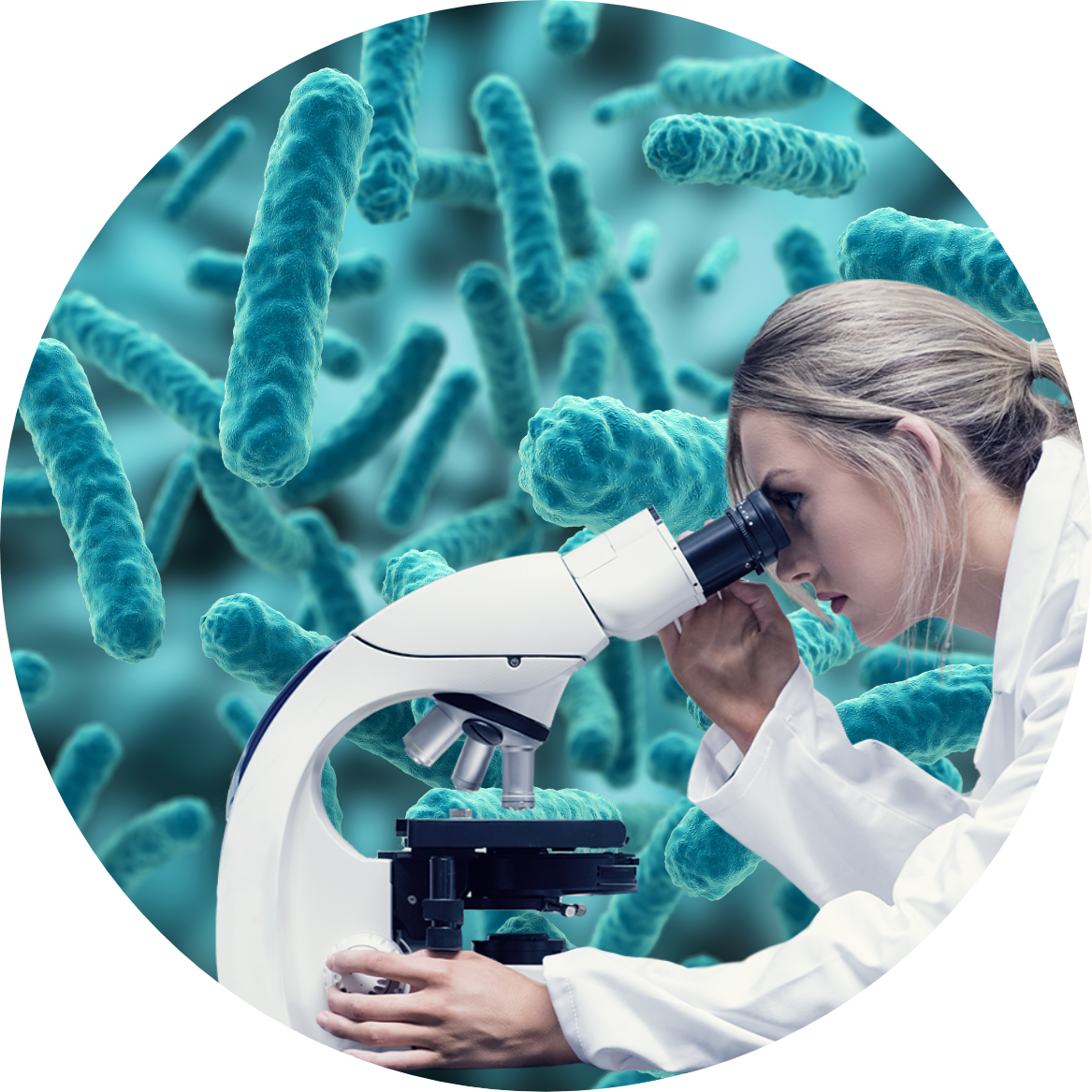A gut microbiome test is needed if any kind of abdominal, neurological, or skin complaint is present. It gives relevant information on gut health.

Research shows that your gastrointestinal (GI) system state (or your “gut”) influences your overall health.
While certain symptoms, such as indigestion, mood changes, and skin diseases, could point to imbalances in the gut, these exact connections can only be understood through testing.
This is where microbiome testing could potentially play a role.
A gut microbiome test is a new diagnostic way to get a picture of your overall health.
Microbiome testing measures the amount and types of microbes in your gut, such as bacteria and viruses, via a stool sample. While such tests may be conducted in a doctor’s office, there are at-home tests too when you have to complete the microbiome testing kits on your own.
A gut microbiome refers to the microbes that exist in your digestive system. The intestines, stomach, colon, and esophagus are all important members of your GI tract, and they all contain microbes that affect the digestion process.
Composition of the gut microbiome
You probably know that billions of microorganisms live in our bodies, mostly located in the gastrointestinal tract. The human genome consists of about 23,000 genes, whereas our microbiome encodes over 3 million genes that produce thousands of metabolites. This means that in the human body there is a superorganism that plays an important role.
Everyone has a unique microbiota like a personal fingerprint and this means that gut microbiota composition is mostly unique to each individual, like an individual identity card.
Current evidence points mostly towards that humans live in a sterile environment in the womb and infants only start being colonized by microbes when going through the vaginal passage, or during skin contact with parents or the medical team. The human microbiota is established in this phase and starts as a dynamic ecosystem that stabilizes during the first 2–3 years.
Composition is influenced by:
- Feeding methods (breast milk, artificial milk, and introduction of solid food);
- Medication (antibiotics, acid suppressants, drugs);
- Dietary habits; environment and lifestyle; and weight gain.
- Genetics factors;
- Anatomical parts of the intestinal tract (e.g. the large intestine has a higher microbial diversity compared with the small intestine);
- Gestational age (preterm or full-term birth); delivery mode (vaginal delivery or C-section); and aging.
The microbiomes have many essential functions in the body: from helping digestion and producing vitamins to supporting the development of the immune system and preventing infections. - Impressively there are also interactions between gut microbes and the brain which means we may be able to support mental health by changing the gut microbiome.
- The microbiome functions as an extra organ, that uses nutrients from ingested foods to produce a large number of compounds, including vitamins, short chain fatty acids (SCFAs), and essential amino acids. The gut microbiome, through metabolite production and fermentation, helps the intestine to maintain its equilibrium. When a balanced interaction between the gastrointestinal (GI) tract and the resident microbiota is disrupted, intestinal and extra-intestinal diseases may develop.
Furthermore
Your gut health affects your brain through neurotransmitters (serotonin contributes to feelings of happiness, gaba – gamma- aminobutyric reduces anxiety ) and these neurotransmitters are produced by gut cells and gut microbes.
Why test your microbiome?
The primary purpose of this type of stool testing is to analyze microbes and potential imbalances in your GI system. This kind of stool sample analysis can provide clues to potential inflammatory conditions or autoimmune diseases, such as inflammatory bowel disease (IBD) and Celiac disease.
By testing your gut microbiome, you can learn more about the functions of your gut microbiome and check that it is helping to keep you healthy and not contributing to making you sick. Using a metagenomic gut microbiome test, you will learn your potential to break down nutrients and discover the potential of your gut microbiome to break down macronutrients such as fiber, protein, simple sugars, and fats.
obtain a comprehensive list of the microbial species present
Whether it’s a well-known species or newly discovered, you will get a full list of the different bacteria and archaea present in your gut.
Receive tailored guidance from a Microbiome Coach
If the detailed information about the result of your microbiome test is not enough for you, it is possible to ask for help from a Microbiome coach who helps in evaluating your test result. Gain a deeper understanding of your Insight™ report and discuss your personalized shopping list of food suggestions with a qualified health professional.
Resources
- [1] https://pubmed.ncbi.nlm.nih.gov/28743984/
- [2] https://pubmed.ncbi.nlm.nih.gov/30025401/
- [3] https://pubmed.ncbi.nlm.nih.gov/27812084/
- [4] https://pubmed.ncbi.nlm.nih.gov/28512250/
- [5] Thriene K. et al. Effects of Fermented Vegetable Consumption on Human Gut Microbiome Diversity—A Pilot Study. Fermentation. ;8(3).(2022).
- [6] Sarka A et al. Pychobiotucs and the Manipulation of Bacteria-Gut-Brain Signlas. Trends in Neurosciences. (2016).
- [7] Bear T et al. The Microbiome-Gut-Brain Axis and Resilience to Developing Anxiety or Depression under Stress. Microorganisms. (2021)
- [8] Miranda-Comas G. et al. Implications of the Gut Microbiome in Sports. Sports Health (2022).
- [9] Day AW. et al. Gut Microbiome Dysbiosis in Alcoholism: Consequences for Health and Recovery. (2022).
- [10] Leclercq S. et al. Alterations of kynurenine pathway in alcohol use disorder and abstinence: a link with gut microbiota, peripheral inflammation and psychological symptoms. Transl Psychiatry. ;11(1):503. (2021).
- [11] Seo B et al. Roseburia spp. Abundance Associates with Alcohol Consumption in Humans and Its Administration Ameliorates Alcoholic Fatty Liver in Mice. Cell host & microbe. ;27(1):25-40.e6. (2020).
- [12] Flikkema J. The Relationship Between the Gut Microbiome and Sleep Examined Through Associated Human Disease. University Honors Theses. (2022).
- [13] Han M. et al.. The interplay between sleep and gut microbiota. Brain Research Bulletin. (2022).


